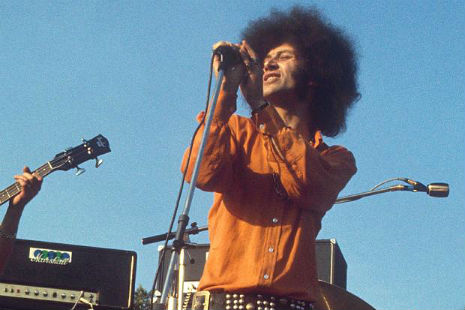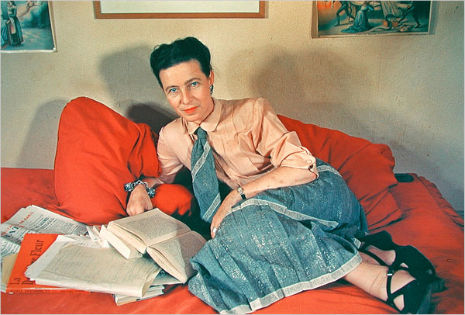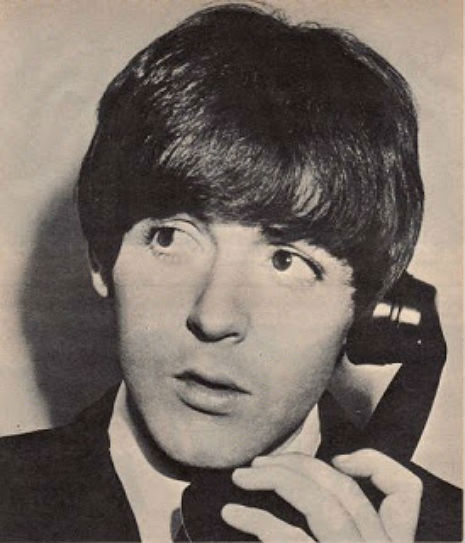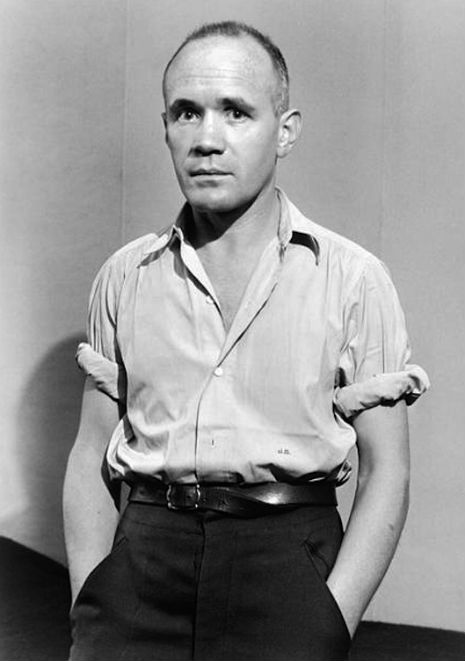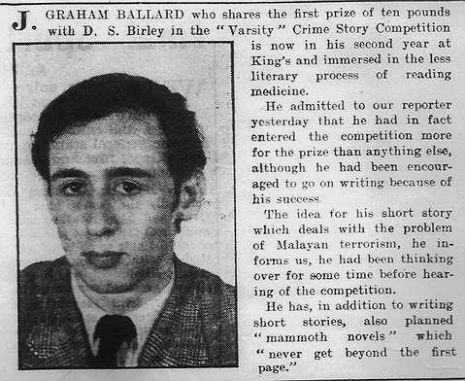
I first noticed a backlash against the Beats when it was announced a few years ago that Walter Salles was making a film of Jack Kerouac’s novel On The Road, with Kristen Stewart cast as Marylou, Sam Riley as Sal Paradise, Garrett Hudlund as Dean Moriarty, and Viggo Mortensen as Old Bull Lee.
You expect to hear negative comments from aging conservative academics in English departments or that weird PhD candidate from the East Coast who supposedly had an “influential” zine once but hated every writer who didn’t sound exactly like William Faulkner.
But this round of anti-Beat Generation comments was coming from much younger people posting on non-academic literary forums, and not just 4Chan’s /lit/ board.
I visited Kerouac’s entire On The Road scroll, purchased by Indianapolis Colts owner Jim Irsay for $2.5 million in 2001, displayed in its entirety, on a day when a fourth grade public school class was on a field trip to the same museum. I had seen the scroll previously when it had been laid out in thirds elsewhere, necessitating multiple visits. This time it took up an entire corridor. I didn’t get to meet the delightful hippie who travels with the scroll simply to set it up and take it down wherever it is being shown. I was peering at the typewritten text peppered with handwritten notes and corrections, ignoring the stares of the security guards who apparently thought I was going to stuff the scroll in my purse and bolt. I was also trying not to snicker at the conversation of a group of nine-year-olds looking at the nearby vintage Playboy cover featuring Marilyn Monroe (also part of Irsay’s collection) displayed on the wall above the scroll’s case.
“Who’s that?”
“It’s Madonna.”
“No, that’s not Madonna. It’s Ke$ha.”
“No, it’s Gaga!”
Their teacher asked me a question about the scroll, obviously assuming that I was a museum employee. When I explained that I was just a visitor, she apologized and said, “But I didn’t think women read Kerouac.”
That was news to me.
The backlash against the Beats in general, and Kerouac in particular, is becoming more evident and is mostly coming from Feminists.
In 2010 blogger Alexa Offenhauer imagined the domestic circumstances around Kerouac’s creation of the scroll in her post “It’ll All Be Worth It If I Get Published, or: Why I Hate Jack Kerouac”:
I can just imagine the scene, can’t you? There he is, playing with his tracing paper, painstakingly cutting it and taping it back together like the world’s first scrapbooker, all while taking himself very seriously and refusing to take any pleasure from his crafty pursuit. Then, just when his poor wife thinks that maybe he is done with the insanity and they can go for a nice walk in the park, he sits himself in the corner at his typewriter, cigarette dangling from the corner of his mouth, and starts a typing frenzy that, as far as she is concerned, may never end.
Imagine the smell that emanated from that corner of the apartment by the end of those three weeks. The ungodly mess of cigarette ash, butts, apple cores, coffee mugs, chicken bones, and dead skin cells that must have littered the floor around him. At least, that is what it would have looked like at the end of those three weeks if I had been his wife. Minus the chicken bones, of course, because I would not have cooked for him and I doubt seriously he would have managed it for himself.
But maybe Joan Haverty not only cooked but also cleaned for him. Maybe she reminded him go to the bathroom and maybe, if she was very skillful, managed to get him in and out of the shower once or twice during that time.
I like to think that she had an affair with the grocer or the mailman while he was lost in his self-imposed, self-consumed insanity, but then I’ve always been optimistic.
Regardless of how she got through those three weeks, by the end of it, she must have been breathing an enormous sigh of relief. No matter how bohemian she was, no matter how much she believed in her husband’s literary genius, as he finally sat up, rubbed his eyes, and said, “I’m finished,” I can’t believe that she thought anything other than, “Thank God, now maybe he can sell this damn thing and then we can move to a place with a cross breeze.”
But no. After that three week marathon, which itself came after years and years of planning and working, it took him another nine years to perfect his manuscript and finally sell it.
Last August a conflict erupted first over an article on The Millions about a literary matchmaking service, Between The Covers, at an independent bookstore in Brooklyn, WORD. Kerouac fan and co-author of Burning Furiously Beautiful: The True Story of Jack Kerouac’s ‘On the Road’ Stephanie Nikolopoulos wrote “On The Highway of Love, Jack Kerouac Divides Men And Women”:
Then I encountered a woman who openly disdained Kerouac – and all that he seemed to represent. It occurred to me that women saw him as a misogynist vagabond, the bad boy who had left their broken hearts in a trail of exhaust fumes. He didn’t like being tied down by responsibilities or women. Perhaps those female readers who actually did like his writing feared adding Kerouac to their list of favorite authors for a literary matchmaking board because they didn’t want to end up with someone like him: a penniless drifter, a dreamer, an alcoholic…
In a work written by a man, the female character is usually going to be the subject of the male gaze. If that work happens to be On The Road, you’re going to end up with women like Marylou and Camille, flat characters being two-timed by hyperactive car-thief Dean Moriarty. It’s no wonder then that many women, even when they put his personal lives aside, don’t relate to Kerouac’s story.
Jezebel‘s Katie J.M. Baker wrote in response, “Why Don’t Women Like Jack Kerouac?”, dismissing the Beats as “kind of immature dicks” and asking “Do any non-teenage women actually like Jack Kerouac’s On The Road?” (Her own answer to this question is – inaccurately – no.)
“Whenever anyone tells me they ‘adore’ On The Road – which doesn’t happen often because I don’t hang out with sixteen-year-olds – I can’t help but think she or he isn’t particularly well-read, just eager to come off as adventurous, spontaneous, and/or sexy.”
One of Baker’s commenters likened being a woman who enjoys Kerouac to being a black person who likes Gone With The Wind or a banker who likes The Communist Manifesto. Another interesting take by a reader was that Dean Moriarty was actually Kerouac’s manifestation of the Manic Pixie Dream Girl trope.
On April 8th this year the goddess herself Kim Gordon tweeted: “[Beat] role models are over rated. Set male evolution back to caveman era,” possibly referencing her ex-husband’s new band (Chelsea Light Moving) and their song “Burroughs.”
Is it fair to morally judge an artist’s work based on how he lived his life if all of his work is autobiographical and barely fictionalized?
Personally if I purged my bookshelves, real and virtual, of all the alcoholics and misanthropes – let alone all the manic-depressives, opium addicts, suicides, eccentric asexuals, adulterers and misogynists – I would hardly have any books left. In fact, I would probably have remaining to me some dictionaries, an anonymous booklet on reciting the Divine Mercy chaplet, The Better Homes and Gardens Cookbook (first edition), and my husband’s copy of Henley’s Formulas for Home & Workshop.
So it would be a real bummer if from now on when I read On The Road I have to take Dean Moriarty not as a fictional, folkloric, mythic, modern Western American character but as the actual man (Neal Cassady) on which Moriarty is based, who, to be fair, was rather fucked-up. I don’t want to be a Monday morning armchair shrink and classify Moriarty as a likely bipolar, child molesting, sex addict, kleptomaniac, sociopath with ADHD who abused cannabis, amphetamines, hallucinogenics (later) and every woman who crossed his charismatic path. I don’t research Buddhism to determine whether the kind portrayed in The Dharma Bums is accurate and doctrinally sound either.
Taking Beat literature out of the context of the time and culture in which it was written robs it of too much of its power and importance. It’s unrealistic to examine written works from the late 1940’s and 1950’s and excoriate their views of women based on modern Feminist standards that would have been quite alien to men and women of that time. (Have these anti-Beat critics have ever even met and conversed with real-life old men in their eighties and nineties?)
Ted Joans’ line “So you want to be hip little girls?” from his poem “The Sermon” is over the top, yes, but try finding literature written by men from the post-war era that didn’t contain some degree of chauvinism and less than perfect female characterization.
Despite Kerouac’s many flaws, Nikolopoulos summed up the influence that On The Road had on her life as a young woman:
It didn’t occur to me that I needed a boyfriend or even a friend to accompany me to art galleries or readings or to make my life full. I wasn’t looking for my Jack Kerouac. I was Jack Kerouac.
Below, Jack Kerouac on ‘The Steve Allen Show,’ 1959:
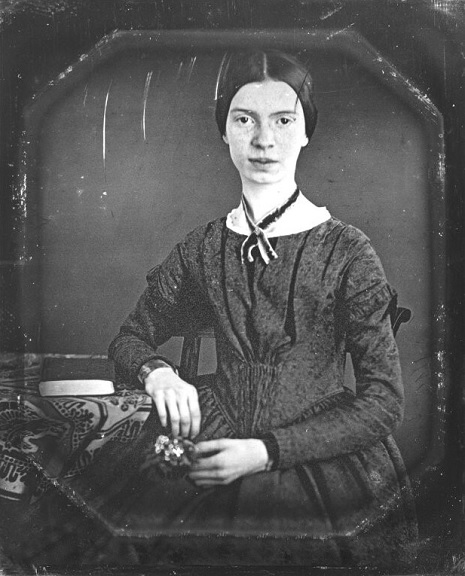
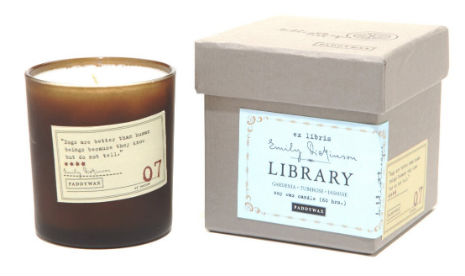
, a little lavender and cassis number named for the notorious shut-in. They even included her famous quote, “Dogs are better than human beings because they know but do not tell!” I suppose it’s for burning when you don’t want company?
, too! What does marriage to your 13-year-old first cousin (Poe was 27 at the time) smell like? Cardamom, absynthe and sandalwood, apparently! (I’d have thought Poe’s signature scent would have been closer to gin.)
, whose slow, grueling death in a forced labor camp smells of cedarwood, thyme, and basil! While I cannot find the quote used to commemorate Wilde, I don’t believe it’s my personal favorite of his words, written shortly after his imprisonment (and essentially, long-running execution) for homosexuality:






